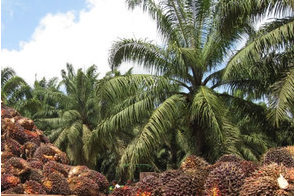WTO agreement on fisheries subsidies enters into force

Summary
Adopted by consensus at the WTO's 12th Ministerial Conference in June 2022, the agreement's disciplines prohibit subsidies for illegal, unreported, and unregulated fishing; fishing over-fished stocks; and fishing on the unregulated high seas.
The World Trade Organisation’s (WTO) agreement on fisheries subsidies entered into force on 15 September 2025 following the instruments of acceptance of the agreement from Brazil, Kenya, Vietnam, and Tonga. This brought the total number of acceptances over the threshold of two-thirds of WTO members needed for the agreement to enter into force.
At a special General Council meeting on Monday, WTO members celebrated the entry into force of the WTO Agreement on Fisheries Subsidies, which commits members to curbing billions of dollars in annual spending on the most harmful subsidies that contribute to the depletion of marine fish stocks, WTO said in a statement shared with Financial Nigeria.
Director-General of WTO, Ngozi Okonjo-Iweala, hailed the agreement as a “landmark for global trade governance.” She thanked WTO members for their commitment to protecting the livelihoods of fishing communities around the world. “This agreement demonstrates how you can put trade in the service of both people and planet,” she said.
The Agreement on Fisheries Subsidies is the WTO's first multilateral agreement with environmental sustainability at its core. It prohibits government support to illegal fishing activities and over-exploitation of stocks, contributing to the protection of marine life.
"At a time when the international trading system faces profound challenges, the Agreement on Fisheries Subsidies sends a powerful signal that WTO members can work together in a spirit of cooperation and shared responsibility to deliver solutions to global challenges,” Okonjo-Iweala said in her address to the WTO membership. “The entry into force of this Agreement stands as a reminder that many of the biggest challenges we face are more effectively addressed at the multilateral level. People and nations need a multilateralism that delivers – which is why today is so reassuring."
The former two-term Nigerian finance minister signed the official depositary notification of the agreement's entry into force and handed it to General Council Chair Ambassador Saqer Abdullah Almoqbel of Saudi Arabia, marking the official integration of the agreement into the WTO legal framework.
The statement said that member countries pledged to start implementing the agreement, underscoring the key role it will play in restoring fish stocks, protecting the livelihoods of fishing communities, and promoting food security.
“By establishing rules that prohibit the worst forms of harmful fisheries subsidies, the WTO Agreement on Fisheries Subsidies will help to protect the world’s fish stocks and the livelihoods of hundreds of millions of peoples who depend on fisheries for food, income and employment,” according to the statement.
Adopted by consensus at the WTO's 12th Ministerial Conference in June 2022, the agreement's disciplines prohibit subsidies for illegal, unreported, and unregulated fishing; fishing over-fished stocks; and fishing on the unregulated high seas.
In 2021, 35.5 per cent of global fish stocks were overfished compared with 10 per cent in 1974, according to Food and Agricultural Organisation of the United Nations. It is estimated that subsidies to marine fishing activities total US$35 billion per year globally. Of this amount, around US$22 billion are considered to be harmful, contributing to the depletion of marine stocks.
"I strongly encourage all remaining members to complete their acceptances without delay", Okonjo-Iweala said. "One of my key aspirations is to see the Agreement ratified by all members by the 14th Ministerial Conference, scheduled for March 2026, where we will have the opportunity to celebrate this collective achievement together."
The multilateral trade governance institution said its ministers have established the WTO Fish Fund to provide developing economies and least-developed countries with technical assistance and capacity-building needed to implement the new obligations and manage their own fisheries more sustainably.
Seventeen members have pledged the equivalent of more than US$18 million to the WTO Fish Fund.
Related
-
German agency to launch $4.1 million agricultural finance scheme in Nigeria
The goal of the scheme is to improve the income and productivity of 200,000 smallholder farmers.
-
Wefarm secures $13 million funding to lift small scale agriculture
Wefarm said this financing will help to further scale its network of 1.9 million farmers and connect farmers in Africa.
-
IFAD, Sierra Leone sign agreement for $72.6 million agriculture project
The project will facilitate the government’s crop diversification and rural poverty reduction agenda.








